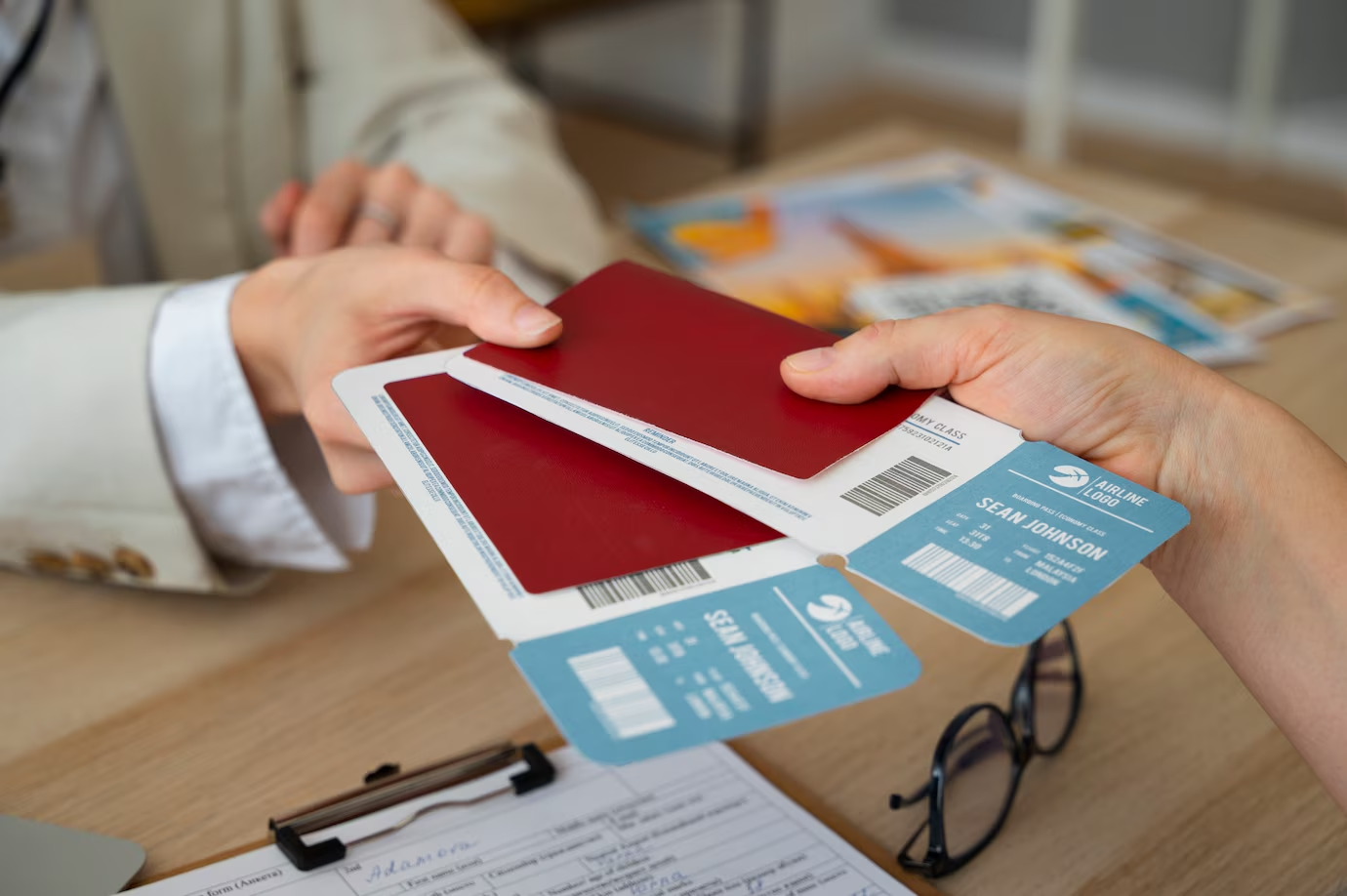Obtaining a visa is a significant milestone for anyone planning to travel, work, study, or live abroad. However, securing the visa is only the beginning. There are several post-visa issuance procedures and considerations that are crucial for ensuring a smooth and successful transition to your destination country. This essay explores the steps and requirements that follow visa issuance, including document preparation, travel arrangements, customs and immigration procedures, local registration, understanding visa conditions, and navigating the challenges that may arise. Post-Visa Issuance Procedures
Document Preparation and Verification
After receiving your visa, the first step is to thoroughly check and verify the details on the visa. Ensuring the accuracy of your personal information, visa type, duration of stay, and the number of entries allowed is crucial. Any discrepancies or errors should be immediately reported to the issuing authority for correction. Traveling with an incorrect visa could lead to complications at immigration or even refusal of entry into the destination country. Post-Visa Issuance Procedures

Important Documents to Carry:
Passport:
Ensure that your passport is valid for the duration of your stay, and in some cases, for several months beyond your intended departure date from the host country.
Visa Approval Letter:
Some countries require you to present an official visa approval letter in addition to the visa stamped in your passport.
Supporting Documents:
These may include the visa application form, letters of invitation, proof of financial means, travel itinerary, accommodation details, and any correspondence with the embassy or consulate.
Health Documents:
If required, carry proof of vaccinations, medical insurance, or health certificates, especially during times of global health crises, such as pandemics.
Travel Insurance:
Though not always mandatory, travel insurance is highly recommended to cover unexpected situations like medical emergencies or trip cancellations.
Travel Arrangements and Pre-Departure Preparations
With the visa in hand, the next step is to finalize your travel arrangements. This includes booking flights, arranging accommodation, and planning your transportation from the airport to your place of stay. If your visa has specific entry and exit points or dates, make sure your travel plans align with these requirements.
Key Considerations:
- Flight Booking: It’s advisable to book your flights after receiving your visa to avoid any last-minute changes or cancellations.
- Accommodation: Have your accommodation arrangements confirmed before departure. Keep a copy of your hotel booking or lease agreement as you may need to show proof of accommodation at immigration.
- Transportation: Research and plan your transportation from the airport to your accommodation, especially if you’re arriving late at night or in a remote area.
- Currency Exchange: Exchange some currency for your destination country before you leave or ensure your credit cards are accepted internationally.
- Packing: Be aware of customs regulations in your destination country regarding items that can be brought in. Avoid packing prohibited items or carrying large amounts of cash to prevent any issues at customs.
Customs and Immigration Procedures
Upon arrival in your destination country, you will need to pass through customs and immigration control. This process can be daunting, especially for first-time travelers, but being well-prepared can make it smoother.
At Immigration:
- Presenting Your Documents: Have your passport, visa, and supporting documents ready for inspection. Be prepared to answer questions about the purpose of your visit, your planned duration of stay, and your accommodation.
- Biometric Data: Some countries may require you to provide biometric data, such as fingerprints or a photograph, upon entry. This is usually a quick process but can take longer if there are technical issues or long queues.
- Entry Stamp: Ensure that your passport is stamped with the correct entry date and any additional information, such as the duration of stay allowed. This stamp is crucial as it determines your legal status in the country.
- Customs Declaration: After immigration, you will go through customs. Declare any items that need to be declared, such as large sums of money, goods for resale, or restricted items. Failure to declare these can result in fines or confiscation.
Post-Entry Checklist:
- Keep Entry Documents Safe: The documents you use to enter the country, such as your entry stamp or a landing card, should be kept safe as they may be needed for visa extensions or other official procedures.
- Understanding Your Rights and Responsibilities: Familiarize yourself with your rights and obligations as a visa holder in the country. This includes understanding your visa conditions, such as work restrictions, required registrations, or reporting obligations.
Local Registration and Reporting Requirements
Many countries require international visitors, especially those on long-term visas, to register with local authorities within a certain period after arrival. This registration is often mandatory and can be required for various purposes, such as accessing public services, opening a bank account, or enrolling in educational institutions.
Registration Process:
- Where to Register: Registration is typically done at a local immigration office, police station, or a designated government office. The exact location can vary depending on your visa type and the local regulations.
- Documents Needed: You will generally need your passport, visa, proof of address, and sometimes a medical certificate or police clearance. Ensure all documents are in order before visiting the registration office.
- Registration Certificate: After registering, you may receive a registration certificate or card, which serves as proof of your legal status in the country. Keep this document safe as you may need to present it during your stay.
Consequences of Failing to Register:
- Failing to register within the specified timeframe can result in fines, difficulties in accessing services, or even visa cancellation in severe cases. Therefore, it’s essential to prioritize this task upon arrival.

Understanding Visa Conditions and Compliance
Each visa comes with specific conditions that must be adhered to during your stay. These conditions may include restrictions on employment, study, duration of stay, or travel within or outside the country. Non-compliance with these conditions can lead to serious consequences, including deportation or being barred from re-entering the country.
Common Visa Conditions:
- Work Restrictions: Many visas, particularly tourist and student visas, come with restrictions on employment. Working without the proper authorization can lead to penalties or visa revocation.
- Study Conditions: Student visas often require full-time enrollment in an accredited institution. Dropping out or switching courses without notifying immigration authorities could violate visa conditions.
- Travel Restrictions: Some visas may limit your ability to leave and re-enter the country during your stay. Exceeding these limits can result in your visa becoming invalid.
- Duration of Stay: Overstaying your visa is a serious offense in most countries and can result in fines, detention, or future travel bans.
Visa Extensions and Renewals:
- When to Apply: If you plan to stay longer than your visa allows, you must apply for an extension or renewal well before your visa expires. The application process can take time, and overstaying while your application is being processed may not be allowed.
- Requirements: Visa extensions often require you to demonstrate that you continue to meet the original visa conditions, such as sufficient funds, ongoing employment, or enrollment in a course.
- Approval: Extensions are not guaranteed and are subject to the discretion of immigration authorities. It’s advisable to have a backup plan in case your extension is denied.
Adapting to Local Laws and Customs
Living in a new country requires adapting to local laws, customs, and social norms. Ignorance of the law is not an acceptable defense, and breaking local laws can lead to legal consequences, including deportation.
Legal Considerations:
- Local Laws: Familiarize yourself with local laws, including those that may differ significantly from your home country. This could include regulations on alcohol consumption, driving, public behavior, and dress codes.
- Cultural Sensitivity: Respect local customs and traditions, even if they differ from what you are accustomed to. This includes being mindful of cultural taboos, social etiquette, and religious practices.
- Health and Safety: Follow local guidelines on health and safety, including those related to food, water, and environmental conditions. Access to healthcare may vary, so it’s essential to know how to obtain medical assistance if needed.
Emergency Contacts:
- Embassy or Consulate: Register with your country’s embassy or consulate upon arrival. This can be helpful in case of emergencies, such as natural disasters, political unrest, or personal issues.
- Local Authorities: Know the contact numbers for local emergency services, including police, fire, and medical assistance. Having this information readily available can be crucial in an emergency.
Navigating Common Challenges
Even with careful planning, you may encounter unexpected challenges during your stay.
Common Challenges:
- Language Barriers: If you’re not fluent in the local language, communication can be a challenge. Consider taking language classes or carrying a translation app to assist with everyday interactions.
- Cultural Adjustment: Adapting to a new culture can be difficult, and you may experience culture shock. It’s important to remain open-minded, seek support from fellow expatriates, and engage with the local community to ease the transition.
- Legal Issues: If you find yourself in legal trouble, contact your embassy or consulate for assistance.
Returning Home or Moving On:
- Exit Procedures: When your stay is over, ensure you comply with the exit procedures of your host country. This may include completing an exit interview, paying outstanding fines or taxes, and returning any residency cards or registration documents.
- Re-Entry to Home Country: Some countries may require you to provide proof of your departure from the host country upon re-entry. Keep all relevant documentation, including exit stamps or certificates, to avoid issues upon returning home.
Conclusion: Post-visa issuance procedures are an essential aspect of the international travel and relocation process. By carefully preparing your documents, understanding and complying with visa conditions, registering with local authorities, and adapting to new laws and customs, you can ensure a smooth and successful stay in your destination country.

Disclaimer
The information provided in this document is intended for general informational purposes only and does not constitute legal or professional advice. Visa issuance procedures, requirements, and post-visa processes can vary widely depending on the country of origin, destination country, visa type, and individual circumstances.
Get Free Expert Advice: Are you ready to embark on your next adventure? Whether you’re seeking a work permit, tourist visa, or study opportunities in Canada or other countries, we’re here to help! Contact us today to learn how our expert services can simplify your journey and turn your dreams into reality. Reach out now and let’s start planning your future together!
- Canada Citizenship Requirements: Everything You Need to Know
- Canada’s New Visa Rules: What It Means for Indian Students
- Navigating Student Visa Regulations for Studying in the US, UK, Australia, and Canada
Also read:
- How to Reapply After Visa Rejection: 10 Proven Strategies for Success
- The Most Powerful Passport in the World: Unlocking Global Freedom
- Canada Takes Action to Reduce Fraud in Express Entry System
- Top 10 Countries for Indian Students to Pursue MBBS Abroad in 2025
- Your Comprehensive Guide to Study in the UK: Top Universities

